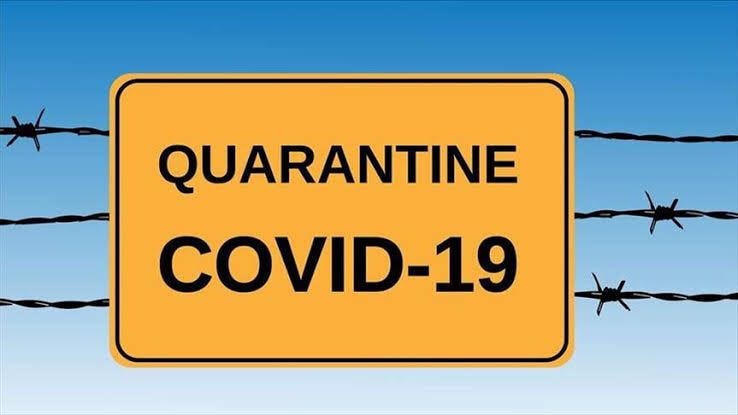Australia and New Zealand are both great countries and have provided many of the most cherished memories of my career. I was hoping to visit both again next year with the Future Tours Programme indicating that an ODI series is scheduled in Australia in February followed by a couple of Test matches and some T20Is in New Zealand.
But it seems they are becoming impossible to organise given the unrelenting unpredictability of the virus management protocols in both countries. A strict 14-day ‘hard quarantine’ period has made it all but impossible to fit both tours into the Proteas’ schedule with Bangladesh due to arrive in South Africa in March.
Efforts are being made to squeeze the Australian ODIs into South Africa’s scheduled Test tour of Australia at the end of 2022 when they are due to play in the Boxing Day and New Year’s window for the first time since 2008/09 but the NZ tour is currently in jeopardy because the tourists would be required to spend 14 days in ‘MIQ’ (Managed Isolation Quarantine) with either no, or extremely limited practise and training time before a Test match just three days after ‘release’.
In Australia, meanwhile, there was news that Tasmania’s Sheffield Shield game against Queensland was postponed when the Tasmanian team returned to Hobart after four positive cases of the virus in Brisbane were confirmed. Four cases. Four. Sometimes it’s hard to believe the news. There had to be more to it. And there was.
It wasn’t a case of timidly quivering cricketers desperate to leave in fear for their lives. The fear was that the state of Tasmania might suddenly close its borders to Queensland leaving the cricket team to undergo 14-days of isolation before they could even return home. Still, the hosts were unsurprisingly unimpressed.
“We should still be playing”, said Queensland chief executive, Terry Svenson. “We have to be better at making decisions like this and not panicking. That decision to postpone and ultimately cancel the match was done before we heard from the [Queensland] Premier and the government’s chief health officer. There’s a flaw in the decision-making process,” Svenson said.
Former Australia wicket-keeper and Queensland legend, Ian Healey, said on local radio: “Tasmania decides ‘we’re out’. It’s unbelievable. What the hell were Tasmania thinking? It’s an absolute debacle and it disrespected the integrity of the competition,” Healey said.
Cricket Tasmania confirmed its decision was made because of fears players could be forced to quarantine upon returning home if Brisbane was declared a ‘hot spot' and would not be able to travel to South Australia and Western Australia. “To some extent I can understand that, but I would have liked to have seen them hang around for another 24 hours,” Svenson said.
Cricket Tasmania chief executive, Dominic Baker, said the decision to return home had been taken after consultation with the captain, Matthew Wade: “He said the sentiment of the group was, if we can get out and get back, that’d be preferable. They don’t want to be sitting around, doing nothing. No doubt there would be a level of frustration amongst the group”.
Just when Australia’s staging of their premier, domestic competition couldn’t possibly become any more disjointed, the New South Wales and Victoria squads were blocked by South Australian health authorities from travelling to Adelaide where they were scheduled to quarantine for two weeks, train for another week and then play a series of matches. It was unclear why the teams were prevented from travelling.
“We’re in a holding pattern,” Victoria coach and former Australian opening batter Chris Rogers told the Morning Herald. “We’ve had opportunities to play some intra-squad matches. But you can just sense the guys are getting a little bit frustrated that they can’t play in proper matches. We’re desperately hoping to go and play some of those.
“We’re hoping we go into quarantine, not this weekend but the weekend after, and after two weeks of quarantine we’ll probably need another six to seven days of getting the bowlers back up and bowling and prepared to play. So, we’re probably looking at about four weeks from now,” Rogers said. Bear in mind the first Ashes Test is scheduled for just seven weeks time.
Meanwhile, back in sleepy South Africa the domestic season is underway with 16-teams playing the group stages of the CSA T20 Knockout. So far without a glitch. Rather than a strict bio-secure bubble, the teams are travelling, playing and living in ‘managed environments’ with designated eating areas and plenty of outdoor leisure areas. All the players must have had at least one vaccination unless they have had Covid-19 within the last month.
Most nations on earth have endured preposterous regulations. South Africa, remember, included ‘open-toed shoes’ on the list of items which could not be sold during Level 5 lockdown. Australia’s Federal Government has recently instructed golf clubs to close their toilets which is fine for male members, literally, who can use a tree for a pee. Not so convenient for either sex needing a ‘Donald’ after nine holes.
We should all steer clear of judgement. Instead, in the case of the Australasians, it is more of a plea for an outbreak of sense. Sport isn’t the most important industry in the world, but neither is it insignificant.
Increasing vaccination rates and availability around the world mean that every professional sports person can be protected, and spectators, too. The view of one, prominent SA sports medicine expert I spoke to is that, at some point, we have to move to the level of caution and protection we used to adopt during a really bad outbreak of ‘flu.






Thanks for the update, Neil.
Thanks Manners - but certainly depressing